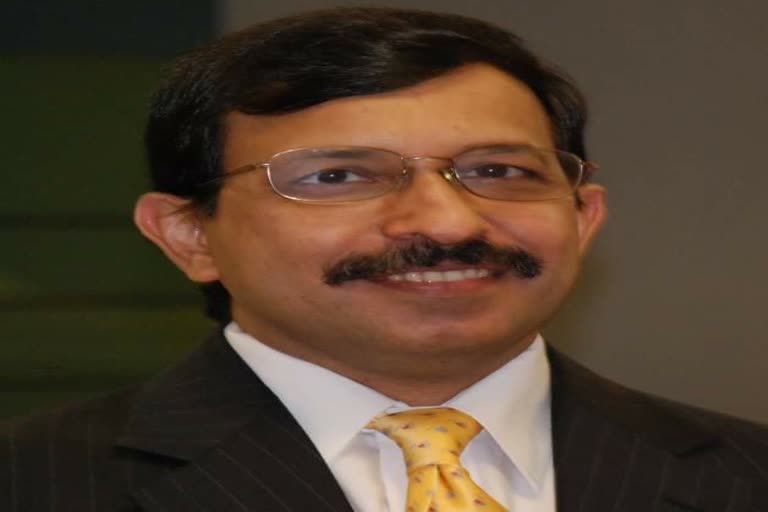New Delhi: The Reserve Bank’s decision to keep the key interest rates unchanged is aimed at keeping inflation under control as under the Monetary Policy Framework the RBI is answerable if the retail inflation remains above the target of 6% in two consecutive quarters, said Dharmakirti Joshi, Chief Economist of CRISIL.
“RBI is operating under the monetary policy framework which requires inflation targeting. It is their task to keep inflation in 2-3% range (of the target) and if it doesn't stay in that range for more than two quarters then I think they are answerable for that why they did not control it,” Dharmakirti Joshi said in response to a question by ETV Bharat.
Addressing a virtual meeting organised by Noida based policy think tank EGROW Foundation, Joshi said the RBI is not resorting to rate cuts as retail inflation is above the target.
“Headline CPI inflation increased to 6.7% during July-August 2020 as pressures accentuated across food, fuel and core constituents on account of supply disruptions, higher margins and taxes,” the Reserve Bank’s Monetary Policy Committee noted in its resolution.
The Reserve Bank said the prices of key vegetables such as tomatoes, onions and potatoes should soften in the third quarter with the arrival of the Kharif crop. But it also expressed concerns that the price of pulses, oilseeds will remain firm due to high import duties and the retail price of petrol and diesel will also remain high in absence of a rollback in taxes even if the international crude prices have softened in September.
According to the RBI’s projections, the retail inflation would be at around 6.8% during July-September period and it will come down 5.4 to 4.5% during the second half (October-March period) of the current fiscal.
"Our projections indicate that inflation would ease closer to the target by the fourth quarter of FY 2020-21,” said the committee.
Read: Two in 5 Indian professionals experiencing increased stress due to COVID-19: Survey
“Clearly, because of that factor they are not resorting to rate cuts. If the inflation comes down below 6% in a sustainable manner then they are going to cut the rate. Till then they are not going to use this instrument,” Joshi said in response to ETV Bharat’s question.
“They are bound by the monetary policy framework, they will find it difficult to cut the rate and justify it,” explained the top economist.
The RBI projected that retail inflation will further come down to 4.3% during the first quarter of next fiscal.
In its meeting held over three days, from October 7 to 9, the monetary policy committee unanimously decided to keep the two key short-term interbank interest rates unchanged.
The Repo Rate at which banks borrow from the Reserve Bank has been kept unchanged at 4% while the Reverse Repo Rate, the rate at which banks park their surplus funds with the RBI, remains unchanged at 3.35%.
While all six members of the committee unanimously voted in favour of keeping the policy repo rate unchanged and continue with the accommodative stance as long as necessary to mitigate the impact of Covid-19 on the economy, only Jayanth R Varma voted against maintaining the accommodative stance in the next financial year.
This is the second consecutive monetary policy committee meeting which has decided to hold the rates despite a sharp contraction in the real GDP.
India’s GDP contracted by 23.9% in the first three months of the current financial year, and according to the Reserve Bank's own estimate, the decline for FY 2020-21 will be in the range of 9.5 to 9.8%.
People in the financial industry feel that the Reserve Bank wants to maintain the status quo as it is expecting certain sectors in the economy to cool down.
“I think the RBI has few choices and they did not want to change the status quo,” said Srirang Tambe, CEO of Origa Lease Finance in response to a question by ETV Bharat.
“You won't change the status quo if you are expecting something to calm down, Tambe said in the Business and Banking dialogue organised by Mumbai based fintech and ATM management firm EPS India.
Read: Last date for filing annual GST return extended to month end


